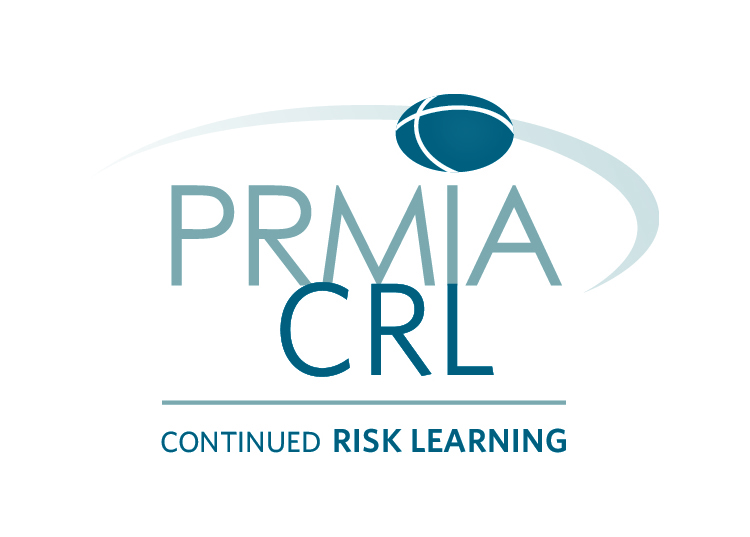Challenges and Roadmap for LIBOR Transition

You are cordially invited by PRMIA London to join us for a virtual event exploring key issues and alternative solutions being pursued to meet challenges and changes across a plethora of models impacting Risk Measurement, Asset Liability mismatch estimation and Transfer Pricing. The targeted 2021 date for LIBOR transition is not far away considering the amount of work and challenges which lie ahead.
 Date
Date:
November 5, 2020

Time:
9:00 a.m. - 10:00 a.m. EST
2:00 p.m. - 3:00 p.m. GMT
7:30 p.m. - 8:30 p.m. IST

Location:
This meeting will be run on the GoToWebinar platform. You will receive a confirmation email upon registering that will allow you to register to the GoToWebinar platform to receive the link to join the event.
Join us for a panel discussion of some of the notable industry challenges surrounding LIBOR transition:
- Risk Model methodology and operational changes: Challenges around risk models changes needed to replace the LIBOR-specific risk factors with ARR corresponding risk factors across asset classes
- Asset Liability Management: Changes needed to be carried out across the models and processes supporting ALM across currencies
- Transfer Pricing: Incorporating the impact of ARR on transfer pricing methodology and models, impact on funding rates and references, curve construction, and downstream transfer price estimation
Not able to participate in the live event? The event will be recorded and a copy made available to registrants. This meeting will follow Chatham House Rule.
| |
Thank You To Our Sponsor |
|
| |
|
|
| |

|
|
| |
|
| Agenda |
|
| |
Time |
|
Event |
|
| |
|
|
|
|
| |
9:00 a.m. - 9:05 a.m. EST
|
|
Welcome and Introductions |
|
| |
|
|
|
|
| |
9:05 a.m. - 9:50 a.m. EST
|
|
Panel Discussion |
|
| |
|
|
|
|
| |
9:50 a.m. - 10:00 a.m. EST
|
|
Audience Q&A |
|
| |
|
|
|
|
| |
10:00 a.m. EST |
|
Closing |
|
| Speakers |
|
| |
|
|
|
 |
|
Antoine Bouvet, Sr. Rates Strategist, ING
Antoine is a Senior Rates Strategist covering developed rates markets. He bases his views on macro developments spanning economics, central banks, supply, and cross-markets dynamics, and finds the optimal way to implement them using quantitative methods. He previously worked at Mizuho international as a Rates Strategist and at MUFG as a Rates Trader. |
|
| |
|
|
|
 |
|
Kshitij Bhatia, Practice Head, Traded Risk, CRISIL Global Research and Analytics
Kshitij Bhatia is the Global Head of Traded Risk Services Practice at the Global Research and Analytics division of CRISIL, an S&P Global company. He comes with an extensive Investment Banking consulting experience including - front-office traded products, risk management, and regulatory reforms.
Kshitij is currently leading CRISIL’s focus on helping financial institutions in the implementation of Basel 4 Reforms, IBOR transition and RFR adoption, and Technology led transformations. |
|
| |
|
|
|
 |
|
Maurizio Garro, Senior Lead, IBOR transition programme, Lloyds Banking Group
Maurizio Garro works as a Senior Lead for the IBOR Transition programme at Lloyds Banking Group, where he is leading the delivery of the changes required for models, curves and products for the transition to the alternative risk-free rates for the Front and Back book. His background is in quantitative risk management, Model Risk, Market Risk, Counterparty Credit Risk, Pricing, Liquidity and Stress Testing. He has a long-standing experience as an internal auditor, consultant and banker in model risk management and previously worked in the Development and Validation teams of top-tier financial institutions in Europe, U.S., and the U.K. for over 15 years.
Maurizio is a frequent speaker on various topics in risk management, a member of the Institute of Internal Auditor, Director of the Global Association of Risk Professional (GARP) London Chapter and member of the Non-Financial Risk Advisory of Center for Financial Professionals (CeFPro).
He has been supporting as mentor start-ups involved in the development of AI/Machine learning products.
Maurizio Garro received his Master Degree in Economics from the Bocconi University of Milano and a certificate in Financial Risk Management (FRM) from GARP. |
|
| |
|
|
|
 |
|
Vladimir Piterbarg, MD, Head of Quantitative Analytics and Quantitative Development, NatWest Markets
Vladimir Piterbarg is the global head of Quantitative Analytics at NatWest Markets since 2018. He held similar positions at Rokos Capital Management LLP, Barclays Capital/Barclays investment bank, and Bank of America. Vladimir Piterbarg has a PhD in Mathematics (Stochastic Calculus) from the University of Southern California. He serves as an associate editor of the Journal of Computational Finance and the Journal of Investment Strategies. Together with Leif Andersen, Vladimir Piterbarg wrote the authoritative, three-volume set of books “Interest Rate Modelling”. He published multiple papers in various areas of quantitative finance, and won Risk Magazine’s Quant of the Year award twice. |
|
| |
|
|
|
.png) |
|
Moderator:
Navin Rauniar, Event Moderator and Risk Advisory Partner, TCS, PRMIA London Steering Committee Member
Senior leader with under 20 years run the bank, change the bank & Big 4 consulting experience across financial services. Navin typically connects C-suite stakeholders across business & technology, using domain expertise that focuses on risk management & capital markets, especially in response to prudential markets regulation such as LIBOR Transition, Brexit impact, FRTB, TRIM, BCBS239, CRR2 & Basel IV impacting an institutions' strategy, process & governance.
Navin currently leads the IBOR delivery for Tier One & Tier Two financial institutions. His offshoring & international experience assists in building diverse & highly performing global teams. Externally, Navin supports the capital markets community via mentoring of risk professionals, thought leadership at conferences and his contribution as a member of the PRMIA Institute & London SteerCo. He is a regular speaker and chair at capital markets forums, as well as a frequent commentator to the press on financial market regulations.
|
|
| Continued Risk Learning Credits: 1 |
 PRMIA Continued Risk Learning (CRL) programs provide you with the opportunity to formally recognize your professional development, documenting your evolution as a risk professional. Employers can see that you are not static, making you a highly valued, dynamic, and desirable employee. The CRL program is open to all Contributing, Sustaining, and Risk Leader members, providing a convenient and easily accessible way to submit, manage, track and document your activities online through the PRMIA CRL Center. To request CRL credits, please email [email protected].
PRMIA Continued Risk Learning (CRL) programs provide you with the opportunity to formally recognize your professional development, documenting your evolution as a risk professional. Employers can see that you are not static, making you a highly valued, dynamic, and desirable employee. The CRL program is open to all Contributing, Sustaining, and Risk Leader members, providing a convenient and easily accessible way to submit, manage, track and document your activities online through the PRMIA CRL Center. To request CRL credits, please email [email protected].
This event is FREE for members and non-members, although registration is required. Click "Register Myself" below to reserve your spot. Make sure to click "Continue" to proceed with your registration. (If this is your first time accessing the PRMIA website you will need to create a short user profile to register.) Support events like this by becoming a member.